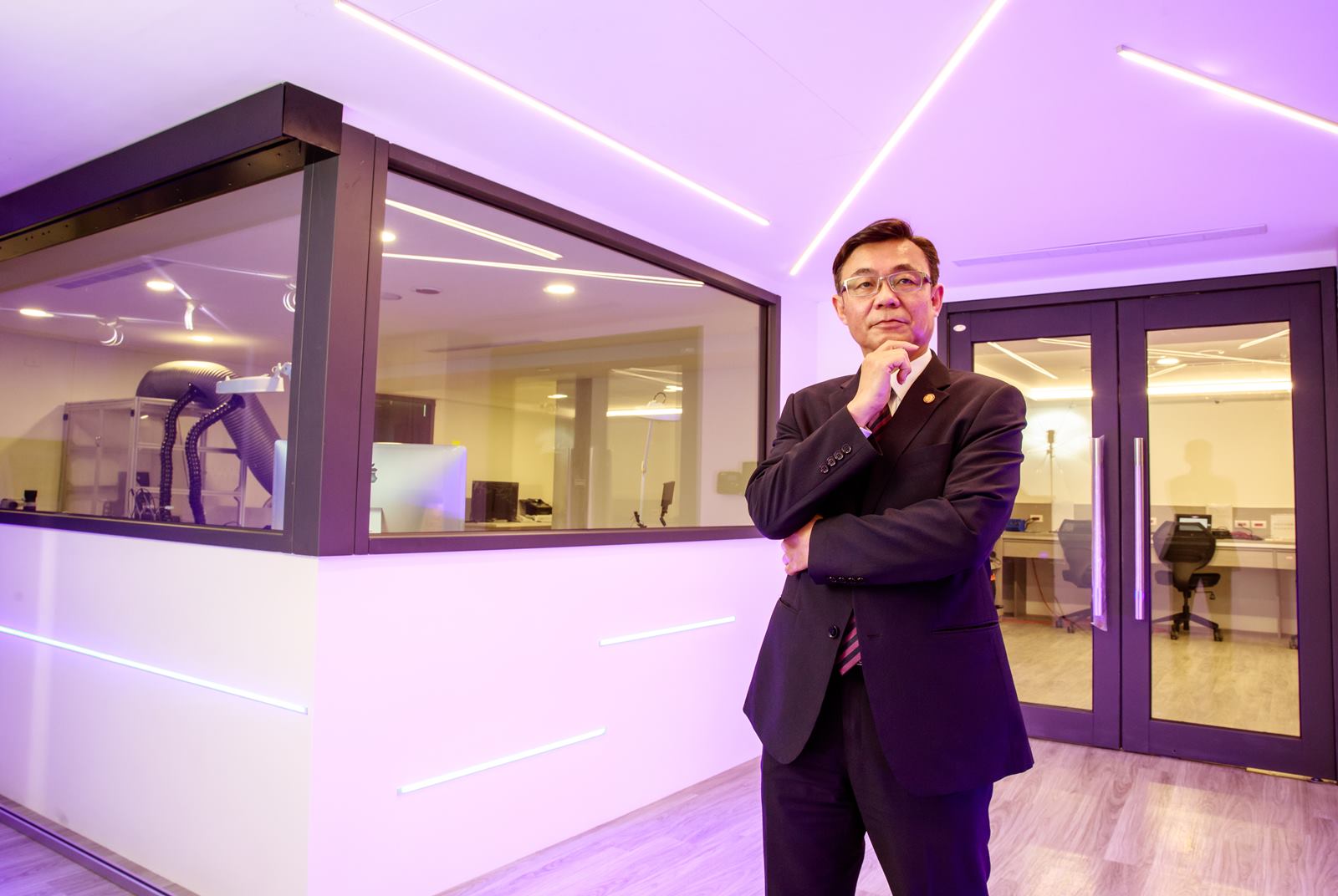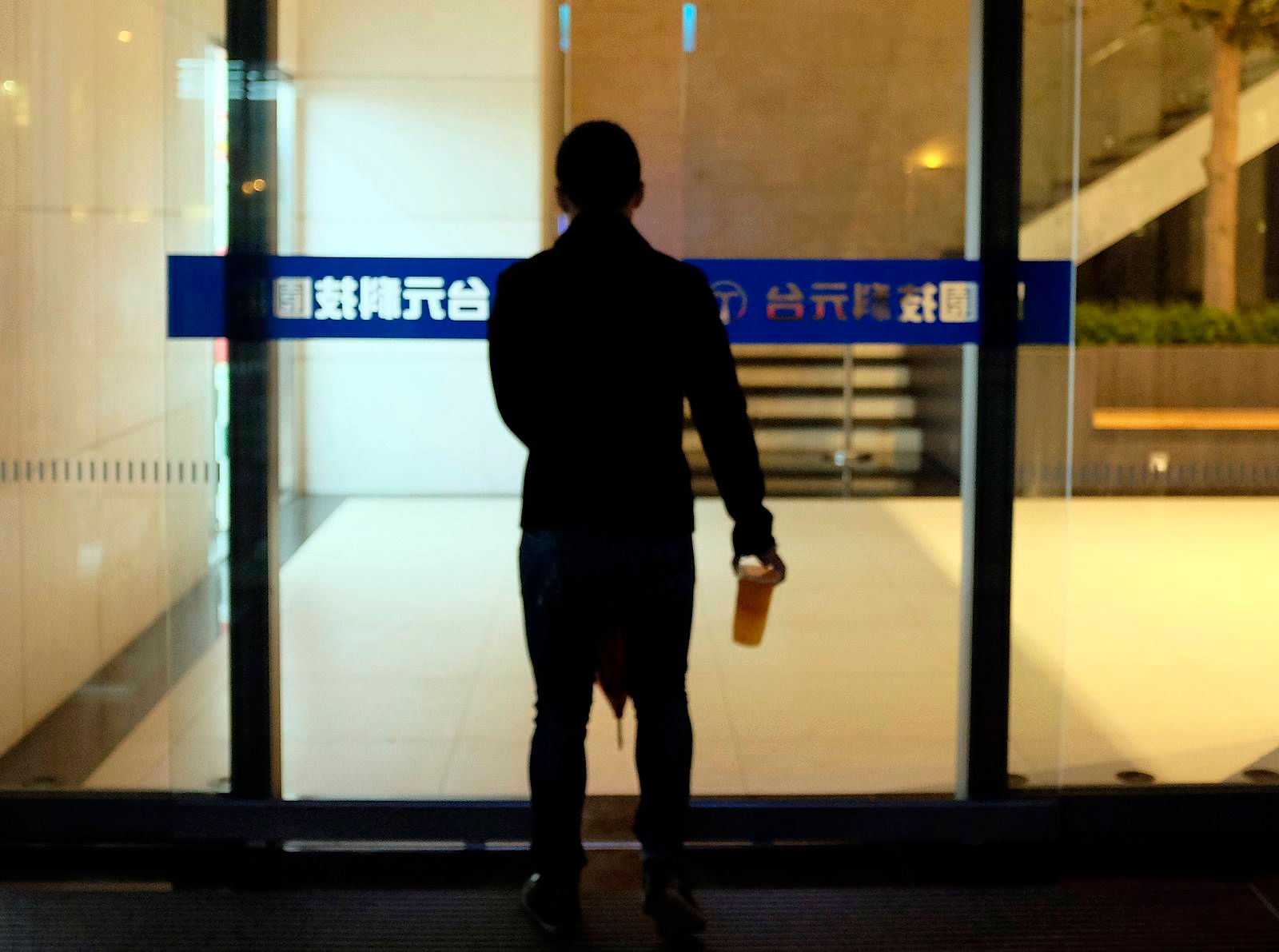Why are Chinese companies in Taiwan being raided?

Source:Chien-Ying Chiu
In March, 11 Chinese companies in Taiwan were raided by the Investigation Bureau under the Ministry of Justice, including the AI chip company founded by the former Chairman of Spreadtrum. The raids are the harbinger of a new law.
Views
Why are Chinese companies in Taiwan being raided?
By Hannah ChangFrom CommonWealth Magazine (vol. 745 )
Not a soul is stirring on the third floor of an office building located five minutes’ drive from the Hsinchu high speed rail station in Northern Taiwan.
These are the offices of Blue Ocean Smart System (Taiwan) Limited, opened in May of 2019. It is the Taiwanese branch of the Chinese AI chip company Blue Ocean Smart System.
A few months ago, there were 50 employees here, holding meetings, discussing AI chip designs, and sending the codes they developed back to Nanjing.
Now they are all gone.
Last August, the Ministry of Justice’s Investigation Bureau (MJIB) raided the offices of Blue Ocean and confiscated computers and documents. On March 22nd, the Hsinchu District Prosecutors Office invoked the “Cross-Strait Act” and prosecuted one Mr. Chang, CEO of Blue Ocean Smart System (Taiwan) Limited, along with two other individuals.
As a result, the AI chip company founded by Leo Li (李力游), former Chairman of Spreadtrum Communications, is no longer allowed to operate in Taiwan.
Li is a celebrity in the semiconductor industry on both sides of the Taiwan Strait; he was the CEO and chairman of Spreadtrum. Not long after Spreadtrum merged with Tsinghua Unigroup, Li founded Blue Ocean Smart System and set up a branch office in Taiwan.
The Cross-Strait Act makes it clear that Chinese companies are only allowed to set up branches or offices in Taiwan with the express permission of Taiwan’s Ministry of Economic Affairs. The Ministry also prohibits China from establishing IC design companies in Taiwan.
But Blue Ocean found a loophole, claiming it was backed by Taiwanese or overseas (but not Chinese) capital. Many such companies exist in the vicinity of Hsinchu Science Park. This March, more than ten such Chinese companies in Taiwan were raided by the MJIB. Every other day, the District Prosecutors Office issued statements about “Chinese companies using Taiwanese workers to illegally engage in IC design” or “one-man companies illegally engaging in research and development for Chinese capital in Taiwan”. In total, nearly a hundred individuals were summoned for questioning.
MJIB: Shock and awe raids pave the way for the Economic Espionage Act
This is part of the Bureau’s special investigation that will “prevent the PRC from pilfering corporate secrets that concern national security” (防治中共竊取國安商業祕密專案). Between July of 2020 and March of 2022, 108 cases were considered, 34 cases were formally investigated, and charges were filed in 20 cases.
MJIB Deputy Director General Wen Han (文瀚) told CommonWealth Magazine, “The hope is that these cases will form the impetus to pass the amendment to the Economic Espionage Act.”
“We need a coordinated effort across Taiwan to create a ‘shock and awe’ effect. We want people to see that the government is determined to combat the infiltration and spying efforts coming from China,” he says.
What is the Economic Espionage Act?
In February, the Executive Yuan passed a draft of the amendment to Taiwan’s National Security Act; it is currently being reviewed by the Legislative Yuan. The amendment adds the criminal offense of economic espionage and defines it as follows: Engagement in or the attempt to engage in acts of economic espionage that appropriate secrets and leak them to China or other hostile foreign powers is punishable by a minimum of five years and a maximum of 12 years of imprisonment, and fines of a minimum of five million and a maximum of a hundred million Taiwan dollars.
This is the Economic Espionage Act.
A legal expert working in the semiconductor industry reveals that the administration is working hard on pushing the act through the Legislative Yuan before June. That’s why the MJIB is on high alert.
Chang Yu-jui (張育瑞), Director of the National Security Department (國安維護處) at the MJIB, explains that the administration wants Taiwanese citizens to understand that China’s infiltration of Taiwan’s high tech sector and its poaching of Taiwanese talent are insidious acts threatening Taiwan’s national security.
At seven in the morning on March 9th, more than a hundred MJIB agents, split into 14 groups, raided eight Chinese companies in Taiwan, including the GLC Semiconductor Group, Vimicro, and VeriSilicon Holdings. Sixty individuals were brought back for questioning.
Like Blue Ocean Smart System, these companies are suspected by the MJIB of concealing their true identities or sources of funding by registering through a Taiwanese citizen or a third party for the purposes of establishing a company, poaching talent, and making sales in Taiwan.
Prosecutor Tsai Yi-chen (蔡宜臻) of the Hsinchu District Prosecutors Office explains that Blue Ocean Smart System (Taiwan) Limited was established without getting approval from the Investment Commission, which is required for Chinese firms wishing to do business in Taiwan. Its CEO, Chang, is a former Spreadtrum employee whose older brother helped him register the company under the guise of being funded by Taiwanese capital in 2019 to avoid being identified as a Chinese firm.
In the indictment drawn up by the Hsinchu prosecutors, a witness testified that last March, when famed Chinese semiconductor firm Bitmain Technologies became the first Chinese company to be investigated by the MJIB for clandestinely setting up two subsidiaries in Taiwan, there was an uproar at Blue Ocean.
Li held an online video conference and personally addressed the question burning in the hearts of worried Taiwanese employees: “Are we funded by the Chinese?” In order to quell his employees’ fears, Li said that the money was not Chinese; it came from overseas.
Since coming into existence last January, the Blue Ocean headquarters in Nanjing has transferred US$5.542 million to the Taiwanese branch over 15 months. CEO Chang was tasked with recruiting 50 Taiwanese engineers and engaging in IC design in Taiwan.
This is what the prosecutors routinely found when they conducted interviews: The engineers wanted annual salaries in the millions, but they failed to check if the companies hiring them were legally registered. Some even acted as cover and came close to breaking the law themselves.
Hung Sung-piao (洪松標), Head Prosecutor at the Hsinchu District Prosecutors Office, uncovered last year that IC Link, Bitmain’s branch office in Taiwan, was poaching Taiwanese engineers. Hung also proved that Bitmain was funneling capital from China, to the tune of NT$1.2 billion over three years, to poach 122 Taiwanese from IC design companies such as MediaTek, Morningstar, and Global Unichip. The MJIB was ultimately able to indict the company for violating the Cross-Strait Act.
“We are hoping to find evidence that connects it to corporate espionage,” says Chang Yu-jui. By going through the confiscated evidence and hard drives, the MJIB wants to find out if the Chinese firms have gone a step farther—from poaching talents to outright stealing information.
MediaTek is one Taiwanese company that the Chinese like to poach from. MediaTek has sued Digital Infrastructure Limited, a company suspected of being in collusion with Spreadtrum, for stealing corporate secrets.
David W. Su (宿文堂), General Counsel at MediaTek and President of the Taiwan Association for Trade Secrets Protection, says that the amendment to the National Security Act has become the focus of the semiconductor industry.

As talent-poaching becomes a major concern around the world, business leaders hope that the new laws aimed at stopping the theft of trade secrets and preventing “the use of key technologies and trade secrets vital to national security abroad” will be able to protect Taiwan.
Problem Number One: Since economic espionage is hard to define, the law is a contingency plan
Will a maximum sentence of 12 years in prison deter Taiwanese employees from stealing trade secrets or being poached by higher-paying competitors?
One prosecutor foresees difficulties in enforcing the law, because economic espionage is hard to identify and punish.
Chih-Chieh Lin (林志潔), Professor at National Yang Ming Chiao Tung University School of Law, uses the United States’ Economic Espionage Act of 1996 as an example. In the 20 years between 1996 and 2016, only nine cases in total were being investigated. Five of the cases were settled out of court, and only one single case resulted in a conviction, because it was hard to find sufficient evidence proving that the defendants knowingly engaged in actions that benefited a foreign government.
But Lin also points out that, in the wake of the escalating China-U.S. trade war, Taiwan has become a focal point in the two superpowers’ geopolitical maneuvering.
Having an “Economic Espionage Act” in one’s pocket is potentially useful, as opposed to having no legal recourse in the face of economic espionage. “It’s better to pass the law now, rather than have no ammunition if push comes to shove.”
Problem Number Two: Who gets to define “key technologies and trade secrets vital to national security”?
The new National Security Act includes an item about “the use of key technologies and trade secrets vital to national security abroad”, which is punishable by three to ten years of imprisonment. Academics and prosecutors are however debating the obvious question: Who gets to decide what constitutes “key technologies and trade secrets vital to national security”?
A third party will need to make the call.
Su recommends that Taiwan emulate the United States Department of Commerce and set up Technical Advisory Committees (TACs). These bodies are made up of government officials, industry representatives, and independent experts. Their job is to act as the third party that determines which key technologies and trade secrets are vital to national security.
At the start of the China-U.S. trade war, then-President Trump based his export embargo list on advice from TAC members. The administration even set up what are known as “emerging technologies advisory boards” to advise the government on the latest emerging technologies.
Going dark: Engineers work at home instead
Kao Ju-ying (高如應), Head Prosecutor at the Hsinchu District Prosecutors Office, worries that many China-funded firms have already caught wind of what is about to happen. “They have gone under the radar instead.”
A young engineer who works at one of the IC design companies being investigated says that his colleagues are worried and trying to look out for themselves. Some are considering quitting, but others are asking if it will be possible to go work in China once the pandemic restrictions eased.
He indignantly invokes the constitution in protest. “Everyone has the right to choose their own jobs.” He points out the hypocrisy of commending Taiwanese workers who go to work for American companies, while at the same time condemning Chinese firms for poaching talent and stealing technology. To this day, the MJIB has failed to convict anyone of stealing corporate secrets. “I think the government just wants to scare us into not working for Chinese companies!”
“For the moment, we have all switched to working from home,” he says. “We are programmers after all. We can work from anywhere.”
Have you read?
♦ A cyber timebomb is ticking, is Taiwan at risk?
♦ Amidst Ukraine crisis, US sends envoy to Taiwan
♦ Fukuyama: Taiwan doesn’t take its self-defense seriously enough
Translated by Jack Chou
Edited by TC Lin
Uploaded by Penny Chiang






